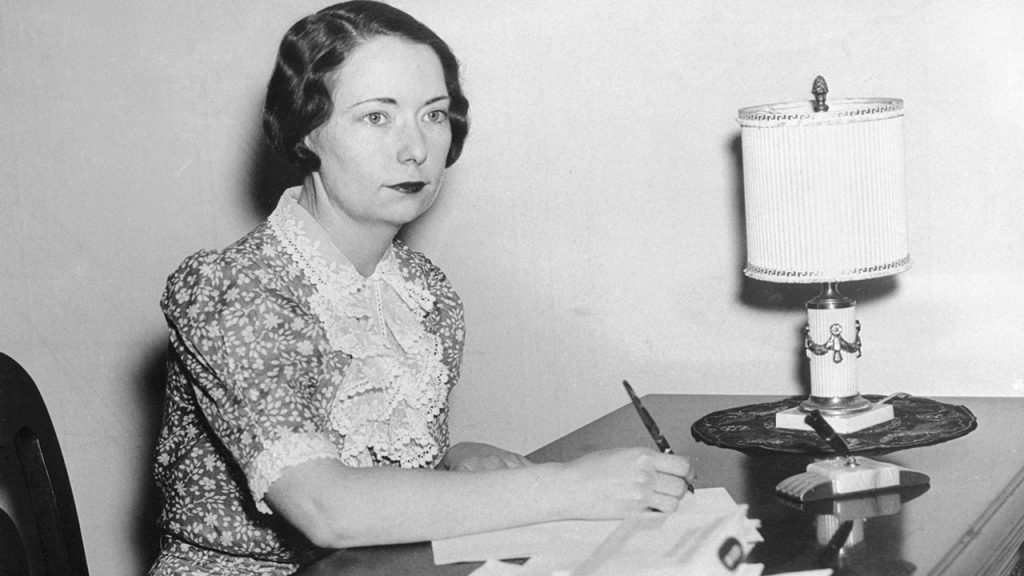Margaret Mitchell, an enigmatic and gifted writer from Atlanta, won the Pulitzer Prize in Novels on May 3, 1937, for her historical fiction masterpiece, “Gone with the Wind.” Mitchell received news of the prize by phone and avoided the press by fleeing to a small Black church for a gospel concert with her husband and close associates. The 1,000-page Civil War saga of love and total warfare in the American South remains one of the most successful novels globally, inspiring a celebrated film adaptation of the same name. Mitchell, born in Atlanta in 1900, grew up surrounded by relatives who recounted stories of the Civil War and Reconstruction, influencing her writing.
Mitchell’s family had a history of fighting for independence, with her grandfather surviving being shot in the head during the Civil War. After spending four years writing for a magazine, Mitchell became bedridden after a car accident in 1926. It was during her recovery that she began writing “Gone with the Wind,” inspired by the devastation of the Antebellum South. The novel, released in 1936, took America and the world by storm, selling over 1 million copies in its first few years and being translated into 16 languages.
The success of “Gone with the Wind” turned Mitchell into a celebrity, as the film adaptation premiered in 1939 to rave reviews and immense popularity. The movie remains the top-grossing film in world history, winning eight Oscars at the 1940 Academy Awards, including Best Picture. Mitchell’s injury and subsequent death in 1949 cut short what could have been a prolific writing career. Despite only publishing one book, Mitchell’s work continues to captivate audiences worldwide.
Despite criticism of its portrayal of slavery and Southern culture, “Gone with the Wind” remains a timeless tale of love, conflict, and survival. The novel’s protagonist, Scarlett O’Hara, embodies a determination to endure despite the world falling apart around her. Mitchell’s legacy as a one-hit wonder in American literature lives on through her iconic work, which has captured the imagination and admiration of people for nearly a century.
The core themes of resilience and survival in “Gone with the Wind” resonate with readers around the world, as Scarlett O’Hara’s defiance and determination to never be hungry again symbolize a universal drive to overcome adversity. Mitchell’s novella, “Lost Laysen,” was published posthumously, adding to the depth of her literary legacy. While Mitchell’s life was tragically cut short, her impact on American literature and popular culture through her iconic work remains unparalleled.


